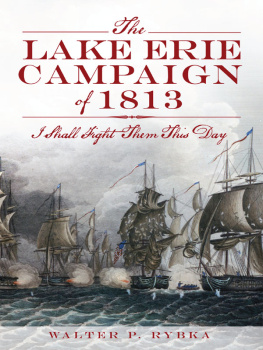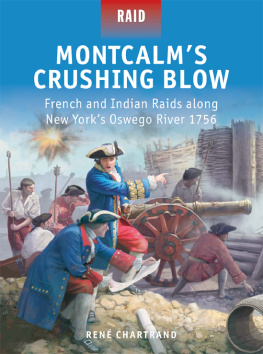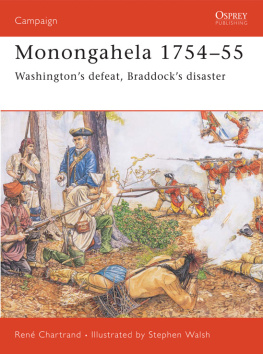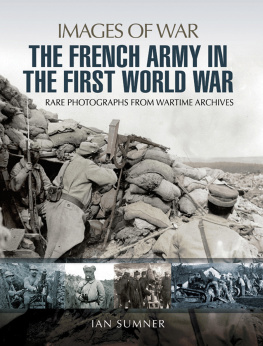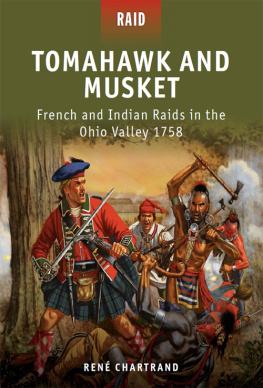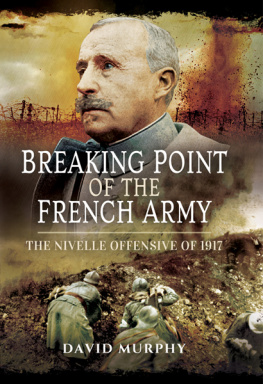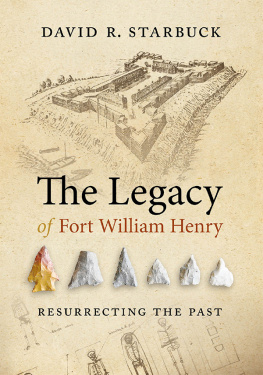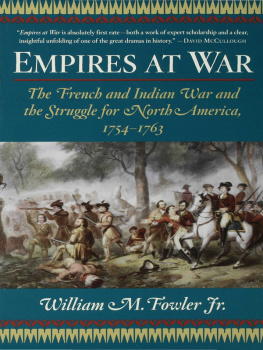


Published by The History Press
Charleston, SC
www.historypress.net
Copyright 2016 by William R. Griffith IV
All rights reserved
Front cover: The Battle of Lake George by Frederick Coffay Yohn, 1905. Authors collection.
First published 2016
e-book edition 2016
ISBN 978.1.62585.757.6
Library of Congress Control Number: 2016936699
print edition ISBN 978.1.46711.975.7
Notice: The information in this book is true and complete to the best of our knowledge. It is offered without guarantee on the part of the author or The History Press. The author and The History Press disclaim all liability in connection with the use of this book.
All rights reserved. No part of this book may be reproduced or transmitted in any form whatsoever without prior written permission from the publisher except in the case of brief quotations embodied in critical articles and reviews.
I would like to dedicate this book to my loving family; past mentor, Dr. Mark Snell; and to all those who were there along the way but are no longer by my side.
Thank you.
CONTENTS
ACKNOWLEDGEMENTS
Piecing together the story of the Battle of Lake George was something that was not completed overnight. Such a complicated subject in a very misunderstood period of our nations history required years of reading and research in order for me to gain a comfortable grasp of what had transpired in the summer of 1755. Writing from West Virginia, it was even more difficult to explain something that happened hundreds of miles away. Thanks to the Internet and years of collecting primary and secondary sources, the task was made somewhat easier.
Along the way I received a tremendous amount of support from my peers and professors at Shepherd University. They inspired me to expand on a smaller paper that I had written on the battle for a military history class in 2012. With a push from one of my past professors, Dr. Matthew Foulds, I presented my analysis at the Phi Alpha Theta Mid-Atlantic Regional Conference at George Washington University in April 2014. My argument was well received, and I was determined to expand my work into a booklength study.
Much of my research was done during my time spent as an intern and volunteer at the David Library of the American Revolution in Washington Crossing, Pennsylvania, which includes an incredible amount of primary and secondary sources relating to the colonial era that can leave one in awe. The librarys staff members are some of the most helpful and knowledgeable people that you can meet, and I would like to give a special thanks to Meg McSweeney for giving me the opportunity to work there and to librarian Kathie Ludwig for introducing me to the various collections and for supporting my endeavor as well.
I would also like to thank my amazing past coworkers at Fort Frederick State Park in Big Pool, Maryland. During the summer of 2015, I was fortunate enough to be given the opportunity to interpret the French and Indian War to the general public and also had my eyes opened to a different side of the conflict that I had not previously studied: material culture. Before my time at Fort Frederick I was strictly a military historian who only focused on battlefield strategy, tactics and so on. But now I have been introduced to a type of history that really brings things down to a personal level with the common soldier. It was an incredible experience to be able to interpret a flintlock musket and the various duties performed by men garrisoning the fort.
Without the proper education and guidance it is impossible for one to exert himself to his full potential. Since my first day at Shepherd University, Dr. Mark Snell served not only as an advisor and professor to me but also as a mentor. He taught me to be disciplined as an historian and to observe things objectively. He forced me to open myself up to all aspects of military history and to never be afraid to accept criticism from my academic peers or be deterred from my beliefs when others do not necessarily agree with my arguments. He shaped me into the historian that I am today and will be for the rest of my life. For that I am ever grateful.
While much of the research was done on my own, I did not keep my interpretations and findings to myself. My friends and family were always eager to hear how my work was progressing and were always there to listen to my thoughts regarding my own work. This past year has not been easy, and I owe it to my family and friends for helping me overcome all adversity and for pushing me to never give up or lose sight of my dreams.
I would also like to personally thank my fraternity brothers of Lambda Chi Alpha for being my family away from my family and always supporting me and showing interest in what I love. Along with them, I am forever in debt toward my history colleagues and friends Kevin Pawlak and Mike Galloway for assisting me with all types of research for various topics, for always being open to a good discussion and for walking the battlefields of our great country with me at every given opportunity.
Finally, I would like to give a very special thanks to my family for making me the man I am today. Without their love and support none of this would be possible.
INTRODUCTION
The significance of a historical event can never be fully understood if it is isolated from its greater context. On a hot summer day in September 1755 at the southern end of Lake George, located amid the beautiful northern woodlands of Upstate New Yorks Adirondack Mountains, an army of colonists then fighting beside the British Empire scored a victory for King George II, the consequences and importance of which have since been misunderstood or neglected by historians and students of military history alike. In the centuries following the Battle of Lake George, scholars have failed to place the event in the greater context of the French and Indian War and more precisely the undeclared war being waged in 1755 between England and France for control of the North American continent. The engagement is constantly interpreted as an isolated event as remote as the virgin northern forests and is described as an insignificant victory that was part of a larger military campaign failure. However, this victory achieved much more than just securing the southern end of Lake George for the Englishground on which the construction of Fort William Henry would begin immediately following the battle. The victory itself is extremely unique, and the consequences of what could have happened had the French driven Sir William Johnsons army from the field may very well have spelled disaster for British expansion efforts on the continent.
In 1903, historian Morris Patterson Ferris concluded in his Account of the Battle of Lake George, September 8, 1755, that the fighting that day was the first great successful battle fought wholly by the provincial troops, and the most important fought on New York soil prior to the Revolution. He could not have been more right when describing the victory in this manner. It truly was one of the first American battlefield victories in North America. Only one British regular officer served among the ranks of Johnsons army, which was made up entirely of volunteers and militia conscripts from New England and New York. These farmer soldiers, as Ferris described them, stood muzzle to muzzle against a French army consisting of regular grenadiers as well as Canadian militia and Native Americans who were accustomed to fighting in the North American wilderness. By the end of the day they had emerged victorious, driving the enemy from the field and capturing the general officer in command of all His Most Christian Majestys regular troops in the colonies, Jean Armand, Baron de Dieskau.
Next page

